Charlie Werber has spent years helping others realize their musical visions. The Chicago-based drummer contributed to projects including the Flying Luttenbachers' complex compositions and Lovely Little Girls' theatrical arrangements, always providing the rhythmic foundation for others’ creative voices.
With Krater, his solo debut released in June 2025, Werber steps forward as the primary architect of his own sonic space. The album presents two sides of a compelling artistic statement: one featuring Werber's unadorned drum patterns spanning twenty-two unbroken minutes, the other expanding outward through collaboration with Daniel O'Sullivan of Ulver and Sunn O))).
The timing of this solo venture reflects artistic necessity as well as personal growth. After years of learning complex material written by his collaborators, Werber felt the need to express the musical ideas accumulating within him and demanding their own dedicated outlet.
Krater also comes on the heels of Werber's return to Chicago after five years in California. The album's title refers both to a Greek vessel, as in a container for whatever the listener brings to the experience, and to Werber's own process of holding space for the intersection of conscious intention and unconscious revelation. This is a recording that invites listeners into a space where time moves differently and familiar patterns yield new discoveries.
In this conversation, we explore Werber's transition from sideman to solo artist, the visionary experience that shaped Krater, and his collaboration with Daniel O'Sullivan. We also discuss the influence of Philip K. Dick and mystical traditions on his work, the contrasts between the Chicago and California music scenes, and his philosophy on the reciprocal relationship between artist and listener.

Lawrence: I think we share a particular affinity for King Crimson's Discipline. Did you already have an understanding of polyrhythm when you started listening to them?
Charlie: King Crimson have been in my DNA since I was in high school. I don't think I necessarily understood what was going on at the time, but the way that all the numbers interlocked really was something that resonated with me. And then later on, I think I developed the vocabulary to understand what was happening.
Lawrence: Tell me a little bit about the development of this vocabulary. You experienced some tension between formal learning and following intuition. I'm curious how you navigated that.
Charlie: Yeah, it was during college. There would be certain academic marks that I'd have to hit in terms of technique or style. And then it was like I was living a different life where I played my own music in my basement with my loud bands. It felt schizophrenic in a way, but I do feel like I was able to take the vocabulary that I learned in an academic context and apply it to my own creative music.
I had to spend hours and hours in a practice room for school, and I think that helped. And learning directly from teachers, I think, was really beneficial, even if it wasn't specifically about hitting technical marks. Just being in the same room was useful.
Lawrence: Tell me a little bit about your physical relationship with the drums. There's such a physical intimacy in the act of drumming.
Charlie: I never really saw the drums as an access point for beyond the mundane, but more that I'm able to play drums, and now they're an expression for something beyond the mundane, if that makes sense. There is something special about drums.
Lawrence: The rhythm, the heartbeat.
Charlie: And if you're going back to King Crimson or polyrhythms, if you're playing with different numbers in relationship to each other, you can look at it as different archetypes interacting.
Lawrence: Are you conscious of that?
Charlie: Not in a formulaic way. I wouldn't use specific numbers because they embodied specific energies, but I think retroactively, I can look back at numbers I've used and see where I was coming from on a subconscious level.
Lawrence: When you started to embark on this current project, it feels like you got fixated on the rhythm.
Charlie: The specific rhythm?
Lawrence: Yes. Basically, you explored it over and over for a length of time.
Charlie: It wasn't about that specific rhythm. It became about that specific rhythm because that's what I landed on. But just the exploration of the same looping thing over and over. I wanted the development of the piece to come from the relationship between what was being played and the observation of what was being played, rather than relying on chord changes or rhythmic changes or something like that.
Lawrence: It seems very much in line with what some minimalists have done with repetition. Do you feel it fits in that tradition?
Charlie: Maybe by accident. That wasn't my intention going in. I assume that I'm coming from a similar place, maybe like some of the people in that tradition.
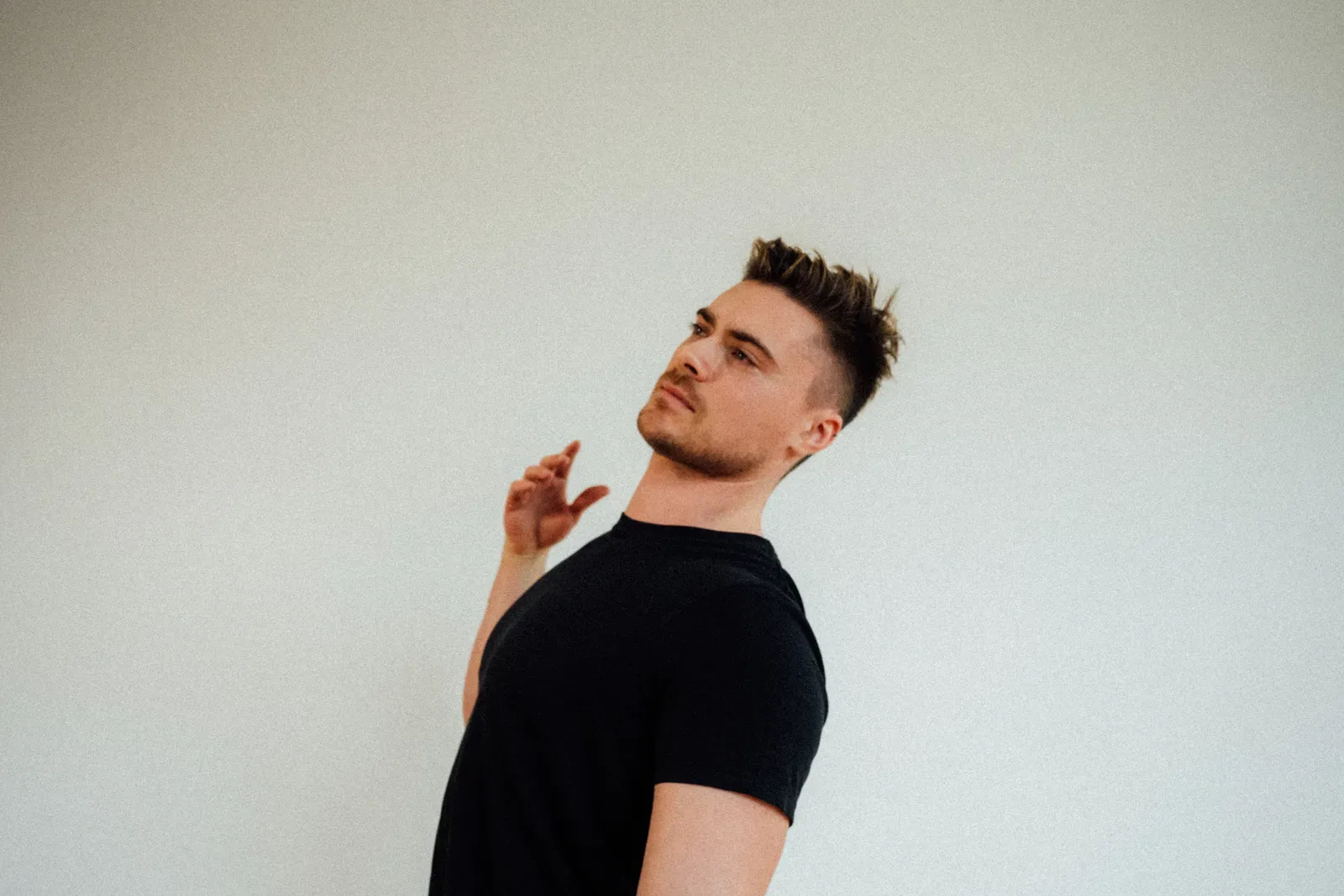
Lawrence: So, what's the vision you had?
Charlie: I don't know how to explain it in a way that actually makes logical, conventional sense. I'm just going to say what I experienced: The divine intelligence planted an egg in my head that was light on one side and dark on the other side, and this egg would rotate. One side would signify existence or time. And then the other side would represent eternity or being itself. And so, in that rotation, there's a disappearance of the dichotomy between those two things.
The only reason that's coming up is because that's what's being expressed in this particular piece of music. I feel like it's easy to get fixated on visionary experience or big explosive openings, but I know that's not the point. The reason that this is relevant right now is not because I'm trying to make a thing of it; it's just because it relates specifically to this piece of music.
Lawrence: I think that's fair. It's an extraordinary and interesting experience, but it doesn't overshadow the work.
Charlie: I appreciate that.
Lawrence: Just gives it context.
Charlie: Yes. Just the context for the piece.
Lawrence: When you talked about what the two sides of that egg represented, were you aware of that as it happened, or did you have to contemplate it?
Charlie: I was aware of that as it happened. It was delivered. It was a punctuation point in a larger process that I was going through, and it happened as a pivot point. 'Making sense' isn't the right term, but 'integrate.'
Lawrence: What's interesting to me about really any source of inspiration is how one translates that into sound or into action. And I think that connects to Daniel O'Sullivan's participation and your choice to enlist him. You have to search for the sound, right? And what did Daniel have that you wanted?
Charlie: It was actually the opposite, where I just decided that I wanted to make something, and then the piece just ended up reflecting this experience that I had several years prior.
Lawrence: Oh, beautiful.
Charlie: 'Accident' isn't the right word, but it was synchronistic with this earlier event. And I wasn't trying to fit this experience into a particular expression. But I'd always felt resonance with Daniel's work. And there's a particular flavor present that I had recognized both within myself and within—just one example is the work of Philip K. Dick. There's something that sort of runs through time or aside of time.
Lawrence: Who were some of the other thinkers who inspired your work? I understand from my own studies and interests that when someone mentions Philip K. Dick, it means something to me. I want to acknowledge that and give you the opportunity to talk about those aspects of life and philosophy and how they fit with your art, because I'm coming from a place of also understanding it.
Charlie: I can tell that you understand where I'm coming from. So, Philip K. Dick. He didn't know what was happening to him. He has all these exegeses of VALIS, all these drawings and writings, but it was a lot of pre-Socratics for him and early Christians and Gnosticism. And I, of course, resonate with a lot of that. On one hand, you could say that it's universal, but on the other hand, there is a specific character of—I hesitate to use the word 'lineage,' but there's a certain line of people in a certain tradition. And I've resonated with that particular tradition.
Lawrence: That's just never felt complete to me as an explanation of his experience.
Charlie: Me neither. I think it's not uncommon for these two sides of the egg, where you could say that on one side is insight, and on the other side is all the human personality, all of the neuroses, and all of that. If someone has a great deal of insight and then also a great deal of neuroses, there's a lot of friction in that. And I feel that's definitely the case with Dick. He is just trying to slog through it on his own.
Lawrence: There's so much warning in all those traditions about doing that, too. Be careful going solo.
Charlie: I felt extremely fortunate to have mentors and guides.
Lawrence: Tell me about the experience of hearing your drum patterns and your work through Daniel's sensibilities.
Charlie: It was amazing. I provided him very little guidance, just some minor input about certain sounds or textures that I liked, and he just took it and ran with it. And it was exactly what I would've wanted if I had been able to put that into words. He did a perfect job.
Occasionally, he would work on it for a few days and then send me, like, "Okay, this is the first several minutes of the piece. What do you think?" And so it was really fascinating to hear the first few minutes. I would approve it and say, "This sounds amazing." And then I'd hear the next few minutes, so I didn't get it all in one go.
Lawrence: If you had said, "Guess how it was made," I would've thought that he just played through a few times. Did you talk at all afterwards about his process or experience?
Charlie: Not really. Hearing it was self-explanatory. Any question that I would've asked him about his process is like listening to it.
Lawrence: I'm very eager to go back and listen again with that knowledge.
Tell me a little bit about the Chicago scene. I love Chicago, and I will die on the hill that it's the second greatest American city. I'm from New York, so I have to fly that flag, but Chicago's just terrific. But the other thing that comes up when I talk to artists from there is that it has something to do with opportunity. Opportunity to play, opportunity to really play across genres. If you want to work, you can work, and you can really hone your skills in a variety of settings. Then the ability to learn from your peers and from the elders that come through or that have decided to set up camp there.
You talked earlier about lineage, and you'll find so much lineage in Chicago.
Charlie: I had moved out of Chicago to the Bay Area and back to Chicago. And so I guess one of the ways that I relate to Chicago is by contrast with California. Chicago has got such a dense feeling to me, and that can feel both good and bad. There's so much going on, and it all feels very compressed and muscular and earthy, whereas the Bay Area felt very diffuse.
There's a lot that can be done artistically in Chicago to the point where I almost don't really know where to start. I feel somewhat removed from the Chicago music scene right now, just because maybe part of it is moving away and then moving back. I feel like I was maybe more embedded in the Chicago music scene when I lived here the first time.
Lawrence: How long were you away?
Charlie: Five years.
Lawrence: That's enough time for the scene to turn over or for people to move on.
Charlie: I think it's not just about location necessarily, it's just that things have changed so much with the way people present. Social media has changed a lot of things.
Lawrence: After working so long in band contexts and helping other people bring their music to life, what do you think this project has taught you about your instincts or, even more importantly, your musical priorities going forward?
Charlie: One of the things that sticks out to me is that if I am initiating something on my own, there's no way to remove it from the rest of my life, and it's necessarily going to feel intimate and vulnerable. And I didn't feel that when playing in a band context.
Lawrence: Can you go back? Will you go back? Or have you now established your path?
Charlie: Yes. I would do any of that again, I think.
Lawrence: Did I read correctly that you recorded more material than you used?
Charlie: Yes. The goal for going into the studio with me playing solo drums was primarily to do this long piece, "Krater." But then I also recorded some other stuff at the same time. I don't know what's going to be done with all of that other material.
Lawrence: How through-composed was "Krater" when you went into the studio?
Charlie: The "Krater" piece itself is just the same pattern for twenty-two minutes. That’s all the take. And then some of these smaller pieces I had worked out, some improvisation, and some more structured pieces like "Krater."
Lawrence: What did you take from this that you're going to build on? I'm curious about what you’ll do with this foundation that you've laid here.
Charlie: Anything that might come off as conceptual is just me stumbling through, trying to describe my experience. Going forward with that, I think just continuing to describe my evolving experience. What would the alternative be?
I don't want to be fixed on a particular structure. I feel like it can feel safe to stick to how I think things are, but that can also be a way of avoiding moving deeper into the truth, or however you want to describe that. Does that make sense?
Lawrence: Yeah, it does. The way it lands for me is that it's good to have your context shuffled.
Charlie: Yeah, for sure.
Lawrence: How long did it take you to find the rhythm pattern for "Krater"? Did you discover it?
Charlie: It had evolved over time. I had played some sort of proto-variation of it, even in a band context. But to arrive at the final version, I think it was just a matter of figuring out which textures on the drum kit I was going to use. I could play it on a cymbal and a snare, or I could play on the floor tom and a snare, and just to arrive at the configuration that you hear on the record took me—the first time that I played any sort of variation of the rhythm was a few years prior to when I recorded it.
Lawrence: I find that so fascinating. I play piano a little bit, and I have found, going back years and years, that when I sit down at the piano, there are some riffs that I'll play when I don't know what I'm going to play yet. And I've always wondered if all musicians do that. It's somewhere between muscle memory and just an icebreaker, but also there's something in the five or seven notes that I'm like, "This is it, I like this,” and it doesn't go away.
Charlie: But you never tried to form that into a piece.
Lawrence: Of all the things I've tried to form into pieces, it's never that.
Charlie: I love that. It's like your friend.
Lawrence: When you started to gain consciousness of the pattern and you started to develop it, why couldn't you leave it alone? Were you compelled to pursue it and to figure it out? You talked about playing it on the different drums and the different pieces of the kit. It almost sounds like not a problem to solve, but like you had to hear it, you had to get to what it was.
Charlie: Yeah, it was, and it was just something that wanted attention. It's amazing. And then with the egg, there's a whole—'mythology' isn't the right word—but there's a whole thing around the divine child popping out of the egg and then descending to earth. You can see this in various traditions. You can look at it as a cosmology.
After we had finished everything for the album, I was listening to it, and I was wondering about the numbers that I had chosen, and so I was looking through the Aleister Crowley text 777, where he goes through all these kabbalistic correspondences. There are maybe these three groupings of seven going over this pattern of three; maybe it has some sort of significance according to Crowley. I was flipping through the book, and then I looked down, and the cover of the book is "777," which is the pattern of the rhythm, which is the lightning bolt coming down from the kabbalistic tree of life from ten to seven, seven, seven. So it also fits in the mythology of the egg.
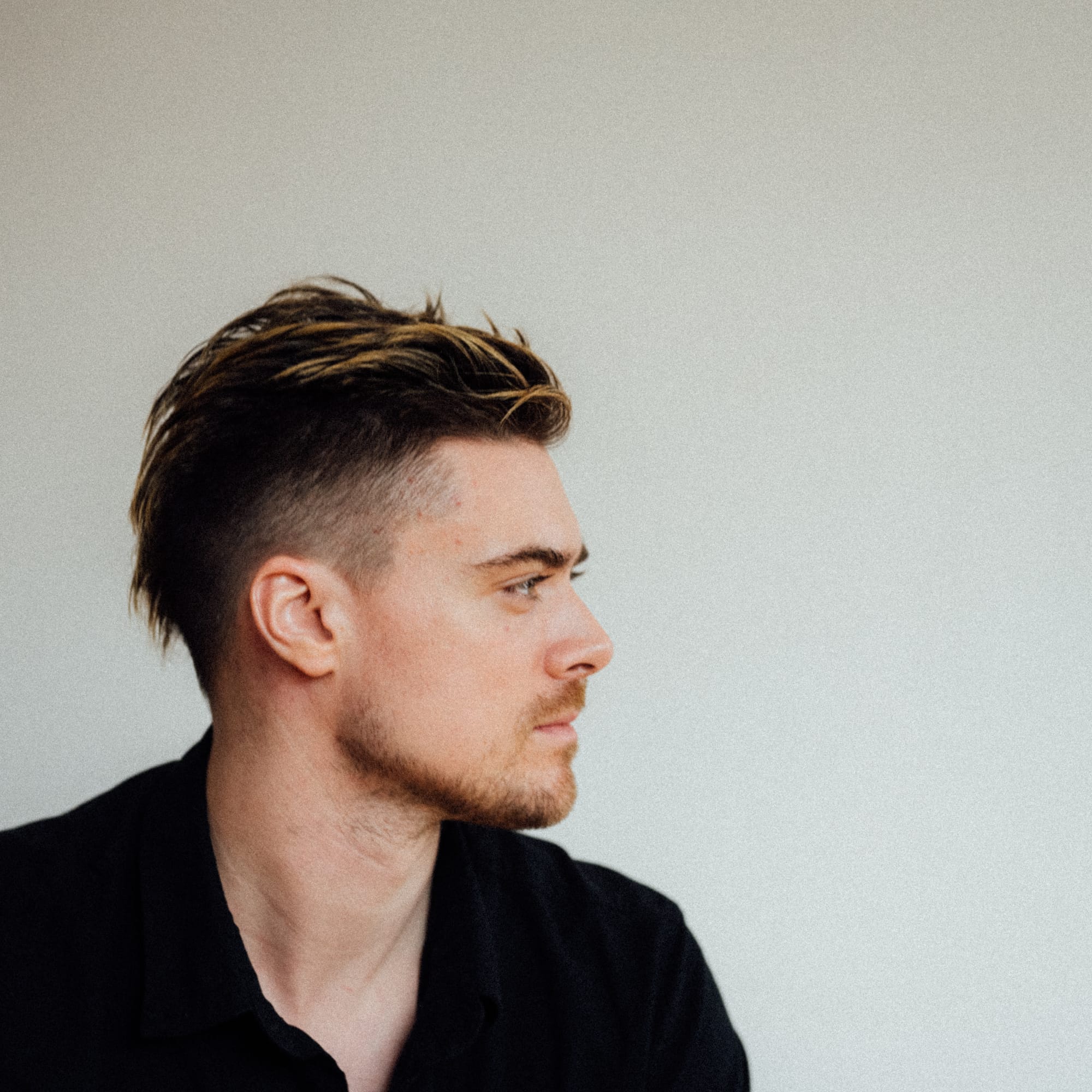
Lawrence: I love it. I'm a longtime devotee of Robert Anton Wilson. He's shaped a lot of how I've come to learn how to think. More than anything specific he has said, he's just helped me learn how to think. It’s interesting to talk to you about some of this, because it seems completely natural to hear some of the things you're saying. To me, it just seems like this is how it works, and your punchline about '777,' to me, of course, the meaning comes after the fact. We're moving forwards and backwards all the time. We just can't tell. The non-linearity of it to me is where it all is.
Charlie: Yeah, for sure. That's going back to the egg and the integration of eternity and time.
Say this involves making sense of the human neuroses. How do human neuroses and eternity—how does that work? Part of the process of making this record is these aspects of human neurosis coming out. And so you can look at it as one side of the egg as being my internal experience, and then the other side of the egg is being my external experience. So this is me expressing something that feels vulnerable and intimate as this egg is spinning, which creates discomfort.
Lawrence: As someone who puts creative work out into the world, I understand that's very vulnerable. Whether it's intentional or with the benefit of retrospect, is that what you're doing? Does your music help things make sense?
Charlie: That wouldn't be my goal. Not necessarily to make sense, but to convey something. And I think this is true of all art, but engaging with this physical object, the vinyl, or listening to the piece of music, you are also engaging with where it comes from in every aspect. To engage with the record is to engage with this egg.
Lawrence: Do you care about the listener's experience? Do you have any thoughts on it?
Charlie: I wouldn't have so much of a preference around medium or format, whether someone's listening on a phone or vinyl. For this record, there's something specific about the spinning of the disc on the center label, and half of it is white and half of it is black, and it's a circle that spins around. But I think there are a couple of different ways of listening to music. One of them is transactional, which is you're listening to music to try to extract some sort of value from it—to be soothed or just for entertainment. And then there's another relationship that someone can enter with music that's more reciprocal, where I feel like I have my most meaningful experiences when I'm not asking anything of the music. I'm not asking it to do anything for me, and I'm just offering myself to the music. Not that one of those ways of listening is better than the other. I think there's a place for both of them, but they're just two very different experiences.
I work as a massage therapist, and I do bodywork, and somebody gets on the table and there's a transactional attitude like "fix me," without actually offering any of their own vulnerability to it. And it's quite a different outcome than somebody who is willing to open up.
Check out more like this:
 The TonearmLawrence Peryer
The TonearmLawrence Peryer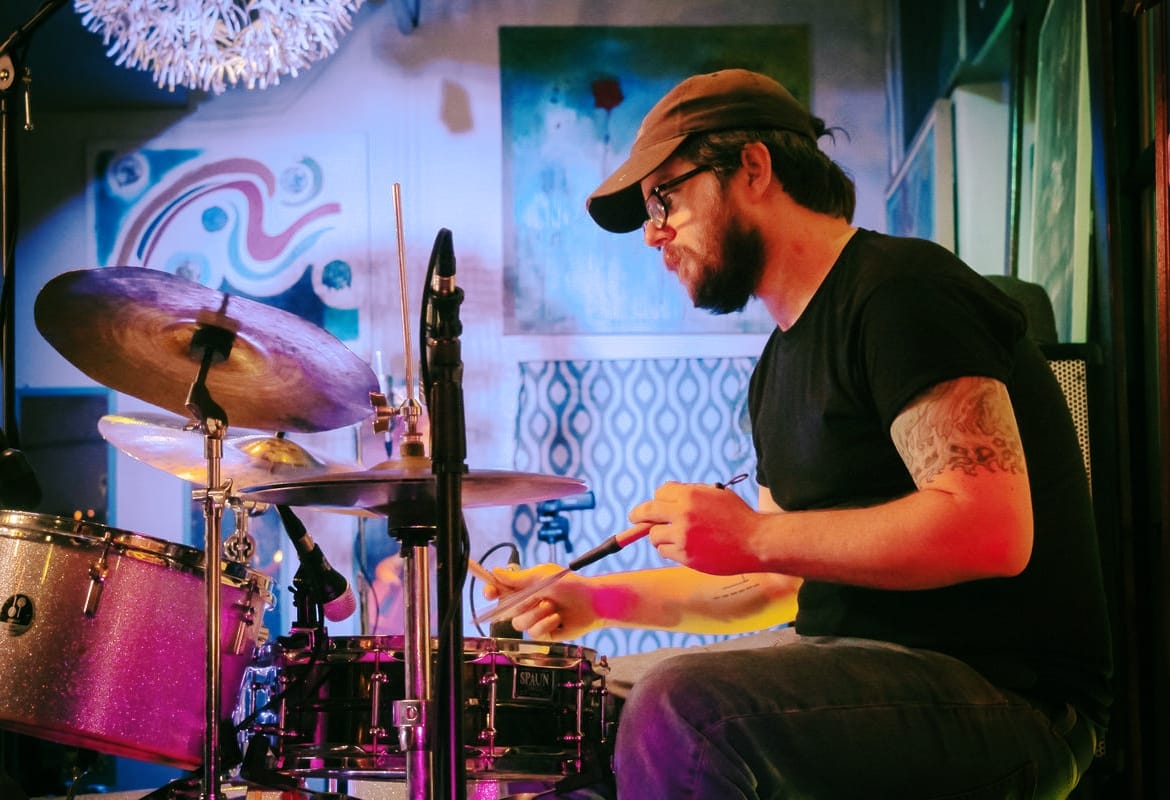
 The TonearmMichael Centrone
The TonearmMichael Centrone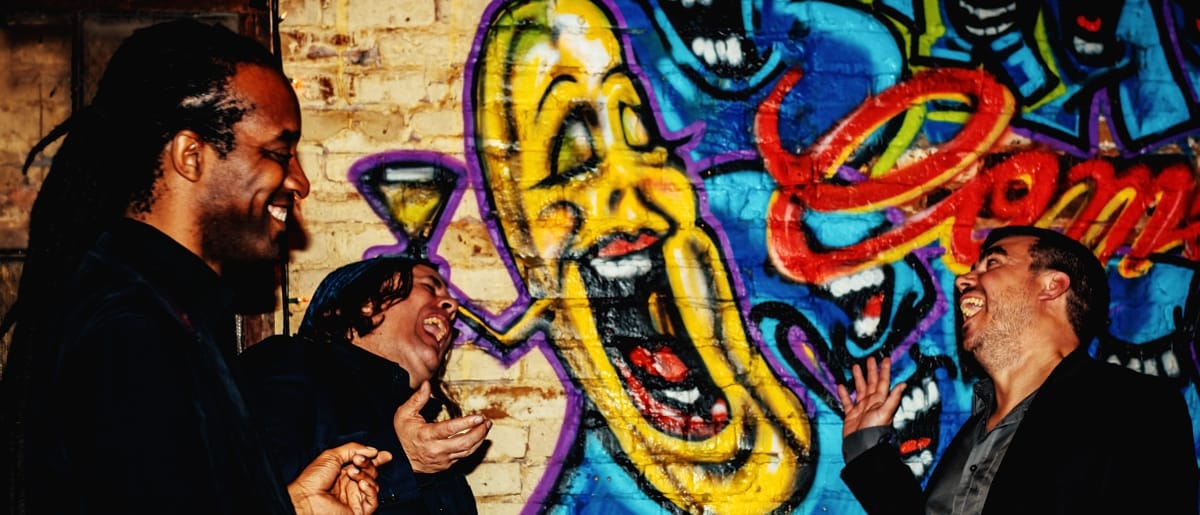


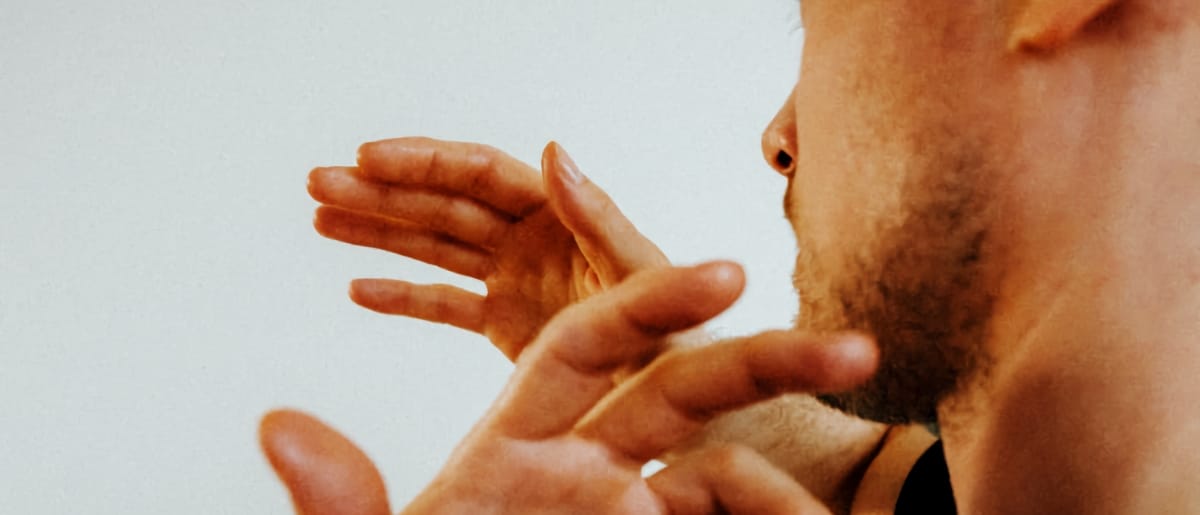

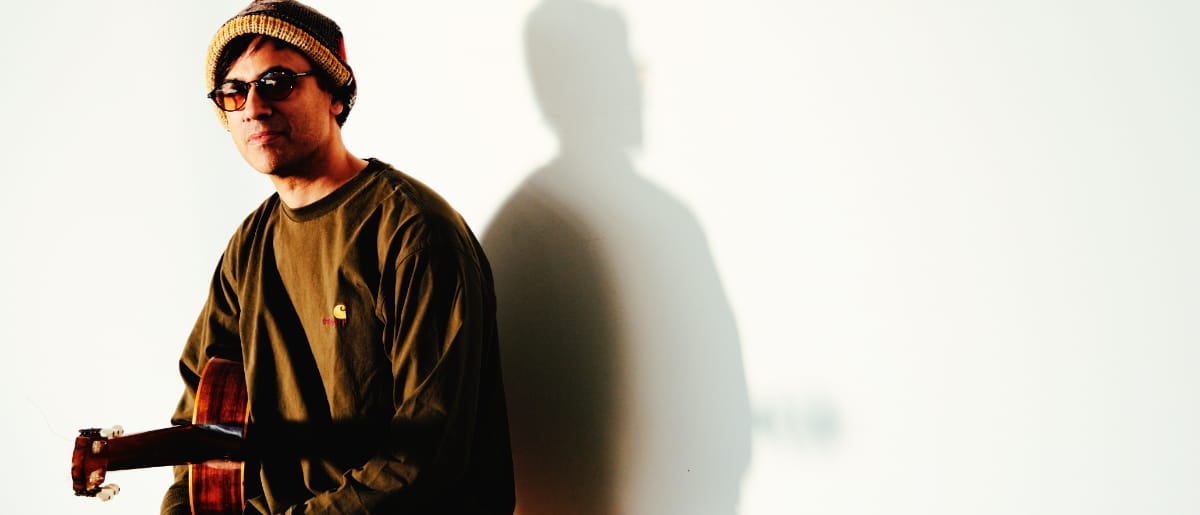
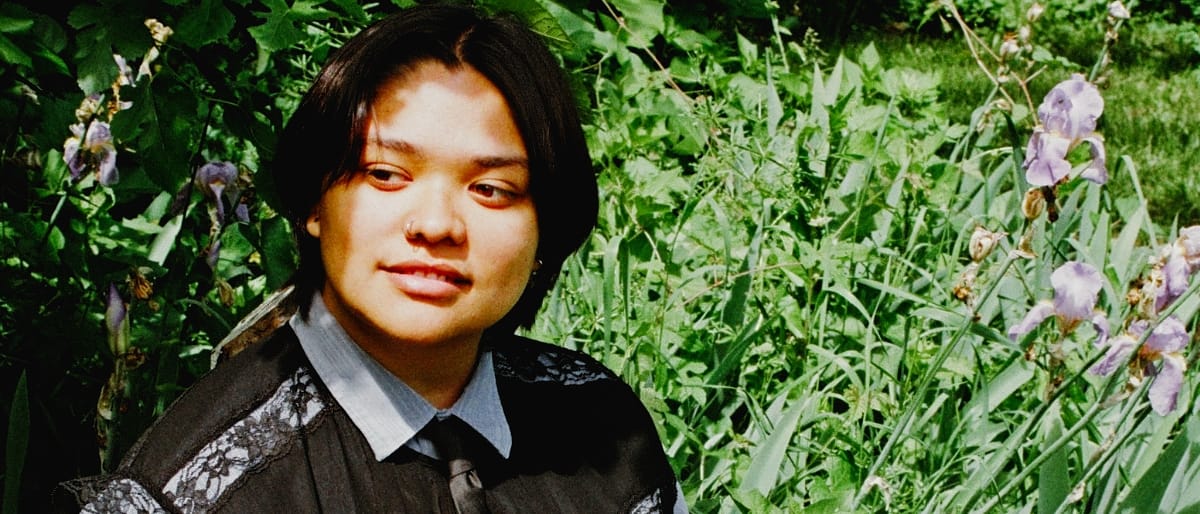
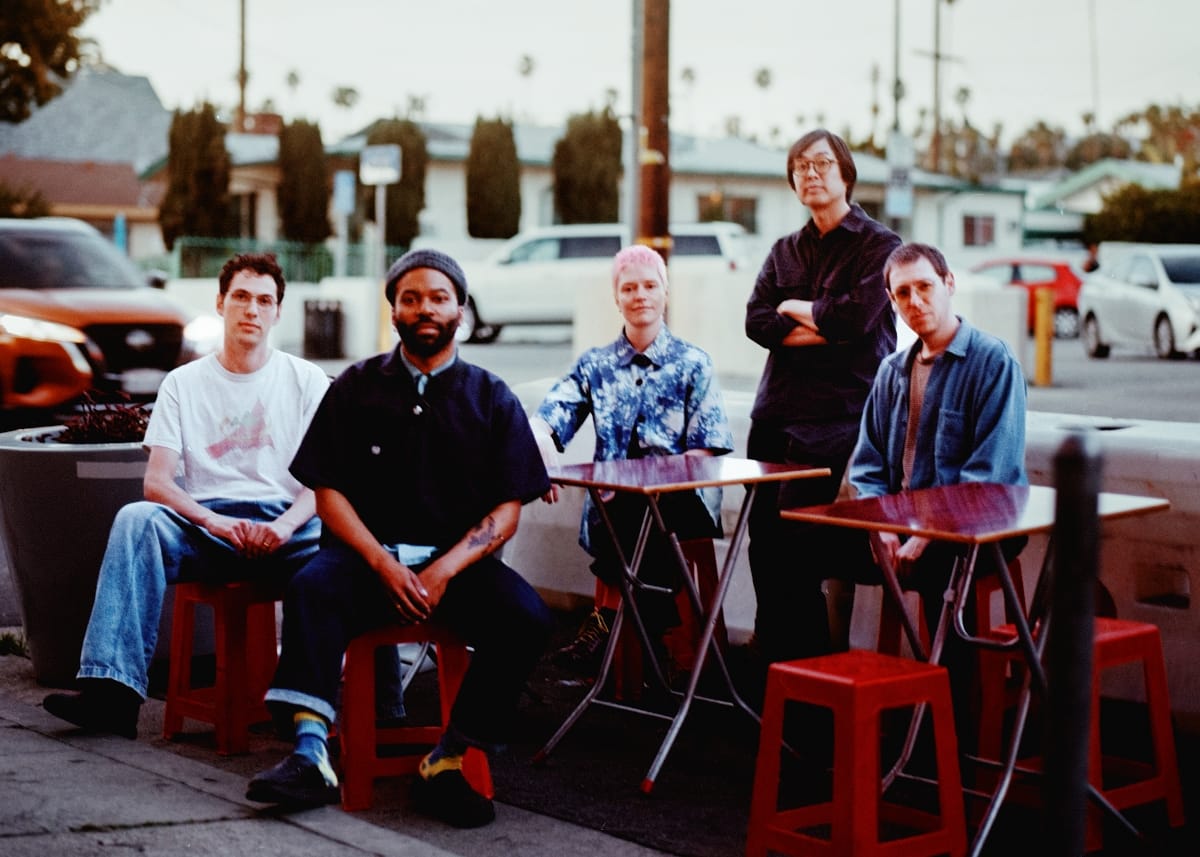
Comments